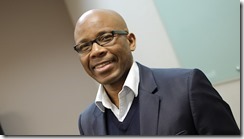Ericsson reported an 11 per cent annual increase in revenues year-on-year to SEK60.7 billion (US$7.09 billion), in what it described as a solid Q2 2015, although if you adjust for constant currency revenues were down six per cent.
Sales were boosted by an improvement in the company’s Networks business, which reported an 18 per cent sequential rise in Q2 revenue, in part thanks to stabilised mobile broadband sales in North America as well as higher network spending by Asian and European mobile operators.
Nevertheless, sales in North America were still at a lower level than a year ago. In addition, sales declined in Japan, parts of Latin America and Russia. Ericsson noted that this was partly offset by a continued fast pace of 4G deployments in Mainland China. Sales growth was also strong in the Middle East, India and South East Asia.
In Northern Europe and Central Asia, sales declined year-on-year primarily due to slower mobile broadband investments in Russia. The vendor noted that Professional Services showed good momentum here, and Support Solutions continued to develop favourably.
In Western and Central Europe, sales increased on an annual basis thanks to improvements in Global Services, continued mobile broadband deployments and investments in network quality.
Excluding restructuring charges, operating income increased by 49 per cent year-on-year to SEK6.3 billion, while the operating margin in the Networks segment recovered from the weak first quarter, rising to eight per cent in the second quarter from two per cent in Q1 2015. Including charges, operating income was 11 per cent lower at SEK3.6 billion.
Ericsson said the operating income was lower primarily due to the higher restructuring charges of SEK2.7 billion associated with the global cost and efficiency programme, which is targeting savings of about SEK9 billion during 2017 compared to 2014. This programme has led to the reduction of 2,100 positions in Sweden, with some 1,700 employees leaving the company. Savings related to these activities will start to impact results towards the end of this year, Ericsson said.
As a result of the fall in operating income, net income was down by 20 per cent year-on-year at SEK2.1 billion, although compared to the first quarter of this year net income grew by 46 per cent. The gross margin was lower at 33.2 per cent (from 36.4 per cent in Q2 2014), weighed down by the restructuring charges.





